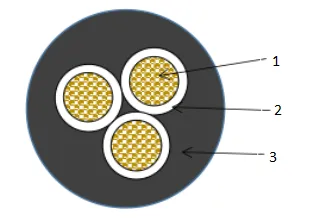Nov . 17, 2024 08:35 Back to list
y strainer manufacturer
The Significance of Y-Strainer Manufacturers in the Industrial Sector
In the ever-evolving industrial landscape, the need for effective filtration solutions cannot be overstated. One such solution that has gained significant importance is the Y-strainer, a type of filtering device designed to remove unwanted particles from liquids and gases in piping systems. The role of Y-strainer manufacturers is crucial in ensuring that industries can maintain operational efficiency and quality control through reliable filtration systems.
Understanding Y-Strainers
Y-strainers are typically utilized in various sectors, including oil and gas, water treatment, food and beverage, chemical processing, and HVAC systems. Their unique design resembles the letter Y, where the inlet and outlet are situated in a straight line, while the straining element is arranged at a 45-degree angle. This design allows for easy removal and cleaning of the strainer, making maintenance a hassle-free process.
Y-strainers primarily function by capturing debris, sediment, and other contaminants that can adversely affect the flow and quality of the fluid being transported. Without effective strainers in place, systems can become clogged, leading to inefficiencies, increased maintenance costs, and even system failures.
The Role of Manufacturers
Y-strainer manufacturers are responsible for producing these vital components using a variety of materials, including stainless steel, carbon steel, and plastic, depending on the application and requirements of their clients. High-quality manufacturers focus on precision engineering, ensuring that their strainers are capable of withstanding varying pressure levels and temperatures while functioning efficiently.
Moreover, the complexity of industrial operations requires Y-strainers to be customizable. Manufacturers often collaborate with clients to design strainers that fit specific system needs, including size, mesh type, and connection types. This level of customization allows industries to optimize their filtration processes, ensuring that they achieve the desired results without interruptions.
Quality Standards and Certifications
Given the critical role that Y-strainers play in industrial processes, manufacturers must adhere to stringent quality standards and certifications. Regulatory bodies such as the American Society of Mechanical Engineers (ASME) and the International Organization for Standardization (ISO) provide guidelines that manufacturers must follow to ensure safety and reliability.
y strainer manufacturer

By obtaining these certifications, manufacturers not only demonstrate their commitment to quality but also give their clients the assurance that their products meet the highest industry standards. This is essential in industries where downtime can lead to significant financial losses and safety hazards.
Innovations in Y-Strainer Design
As industries continue to evolve, so do the technologies and designs of Y-strainers. Manufacturers are now leveraging advanced materials and production techniques, such as 3D printing and automation, to enhance the performance and longevity of their products.
Innovations in Y-strainer designs also include features like self-cleaning mechanisms, which can significantly reduce maintenance efforts. Additionally, some manufacturers are equipping strainers with monitoring systems that provide real-time data on flow rates and pressure differentials. This data can help operators make informed decisions about when maintenance is necessary, thereby preventing unexpected failures and operational disruptions.
The Future of Y-Strainer Manufacturing
As the demand for efficient, reliable filtration solutions continues to surge, the future of Y-strainer manufacturing looks promising. Manufacturers will need to keep pace with industry trends, including sustainability and environmental regulations. This may involve developing eco-friendly materials and designs that minimize waste and energy consumption during production and operation.
Furthermore, the integration of IoT (Internet of Things) technologies into Y-strainer systems will likely become more prevalent. By enabling remote monitoring and predictive maintenance, manufacturers can help industries to not only enhance their operational efficiency but also reduce costs over time.
Conclusion
Y-strainer manufacturers play a pivotal role in various industrial sectors by providing efficient filtration solutions that enhance operation efficiency and maintain product quality. Their commitment to precision engineering, adherence to quality standards, and continuous innovation ensure that industries can rely on effective filtration systems to mitigate risks and maintain optimal performance. As technology evolves and industries face new challenges, the adaptability and forward-thinking approach of Y-strainer manufacturers will be essential in shaping the future of fluid management systems.
Share